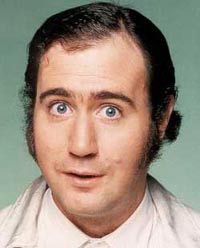A couple of years ago, when we were both working in the education department at Mobius Science Center in Spokane, Washington, Aaron was invited to give a talk at the local TEDx conference. He chose to speak about why science education is important to the world and why it's his passion personally. If you want to skip to the video, click through and scroll down, but I wanted to add something to it first. Both of us feel the same passion for science and science education. People often act surprised and delighted when they find out that informal science is my full-time job and has been for years. Some of the comments they make have led me to believe that there may be this general idea going around that only dedicated scientists can really, truly love and understand science.
Well, we are proof that people who aren't full-time scientists can love and understand science. We do what we do because we want everyone else to feel the same way we do. There's a lot of talk about jobs in the STEM (Science, Technology, Engineering, and Math) fields and those are important. But the world needs accountants, sewer inspectors, pig farmers, musicians, hairstylists, crab fisherman, police officers, and, well, I think you get my point. All of those people have the same potential to fall in love with the universe, to see the grandeur of the cosmos in the sweep of Saturn's rings or the metabolism of a plant cell, as a PhD-holding scientist. Science isn't a job to do; it's a massive, crazy, and yet somehow majestic body of knowledge and, more importantly, it's a way of looking at the world so that we arrive at the most accurate knowledge possible. It's a process of becoming continually, incrementally, less wrong in how we view the universe through the controlled collection of high-quality evidence. And that body of knowledge, that process, is utterly invaluable, universally applicable, and available to everybody. It's just that not everybody realizes it.
We do what we do to help people make that leap. To become scientists without becoming scientists, so to speak. Everyone who has ever looked at something in the world and wondered about it has already taken the first step; we exist to extend a helping hand forward.
But I digress. Aaron says it better than I can in his presentation, titled "How to Be Absolutely Fascinating with Nothing But a Bucket of Dirt."






